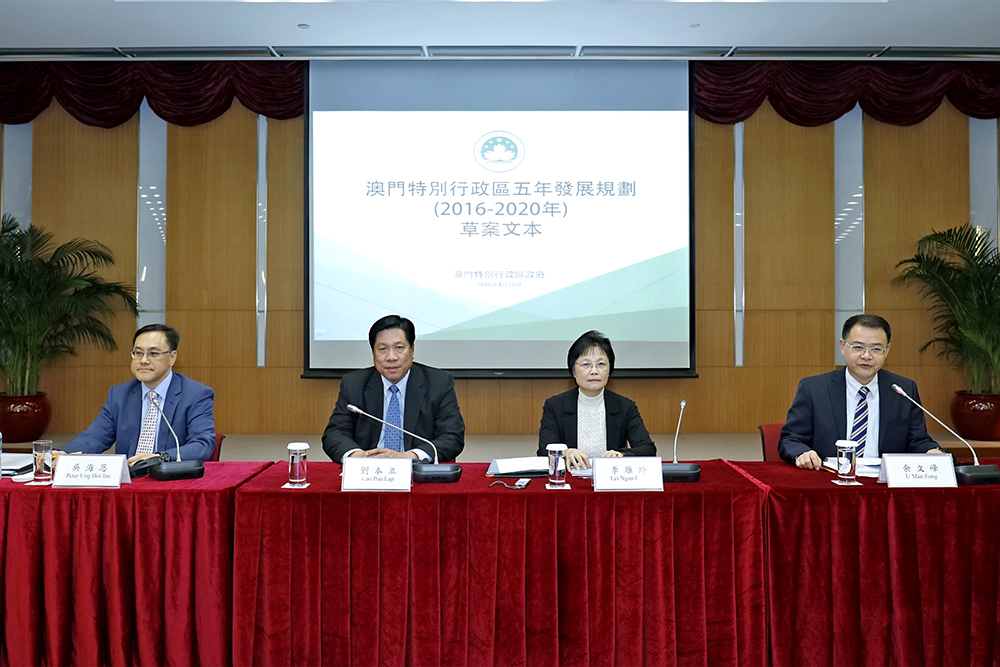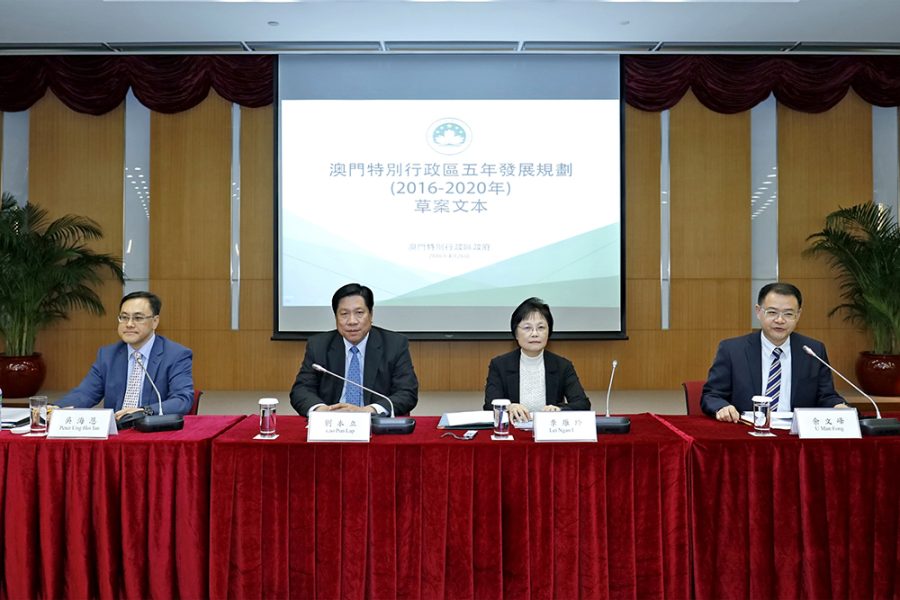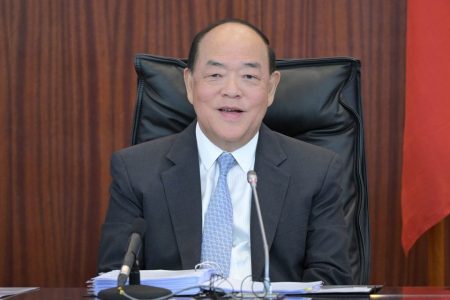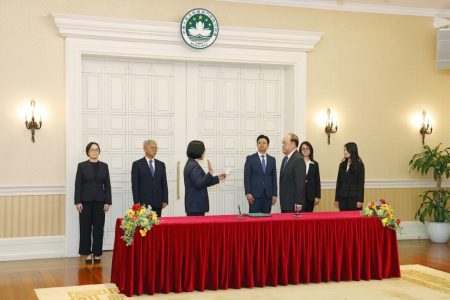The government released a draft on April 26 of its first five-year plan, further heating up the debate surrounding the future of Macau’s economy. Exmoo News, reflected public concern about the plan by covering in great detail the press conference announcing the plan.
Chief Executive Chui Sai On admitted that he had confidence in achieving only 70 per cent of the goals listed in the five-year plan, while Lei Ngan Leng, advisor to the Office of the Chief Executive, explained that executing the plan would face various constraints. Additionally, government departments might not fully coordinate with one another due to limited functionality and differing departmental culture.
The draft sets a goal of raising the gambling industry’s share of non-gambling revenue from 2014’s 6.6 per cent to 9 per cent or above by 2020, but many suspect this figure to be too conservative. Lei pointed out that this goal was set only after extensive consultation between government departments, enterprises, and social organisations.
Whether the administration will be able to achieve the goals of the plan at all are being questioned, as both the Commission Against Corruption and the Commission of Audit have repeatedly exposed problems within various government departments with no visible change.
Having admitted that there is room for improvement, Lei did however credit the government with the courage to expose its shortcomings and take its problems seriously.
Several reporters raised the issue that the draft only contains slogans without any measurable supporting data, even after several months of preparation, thus questioning the viability of actually executing the plan.
Lei countered by pointing to portions of the plan addressing the rule of law for government and society alike and expressed confidence that the administration would progress forward.
Va Kio: Managing the aging population
According to the five-year plan, one focus would be taking care of “vulnerable” groups, stressing that “society as a whole must together face the challenge of an aging population.”
Va Kio Daily published commentary on April 27 stressing the keyword “must”.
According to columnist Luk Tin, dementia is a major problem facing Macau’s aging population, estimating that the proportion of cases is similar to that of Taiwan’s. With a population of 23.4 million, Taiwan now has an estimated 230,000 cases of dementia, yet less than 30 per cent are diagnosed. The number of cases is projected to exceed 930,000 by 2061, and there is doubt that Taiwan’s health care facilities will be able to adequately cope with the problem, thus compounding the issue.
In light of this serious potential health hazard, Macau’s five-year plan should emphasise not only statistically-driven goals for health care facilities but also raise social concern regarding the issue, thereby motivating the public to address the challenge together.
Macao Daily: Too many visions, too few concrete commitments
Macao Daily’s Chun Gan published a column on April 29 emphasising that executing the five-year plan is more important than broadening its vision: “a goal is much better than blind development.”
Chun further stressed that Macau has never been short of vision, only lacking in execution, criticising Macau for tolerating a laissez-faire economy, which has restricted economic development. Hence, laying out a plan is progress in and of itself.
This five-year plan was drafted in an effort to integrate with China’s 13th five-year plan; therefore, Macau’s proposal covers an incredibly wide range of topics.
Some industries are not satisfied with the plan, accusing it of being too vague and comprising mainly broad visions. They are calling for more concrete commitments, such as how resources are to be allocated, how manpower will be developed, and specific details regarding proposed policies.




